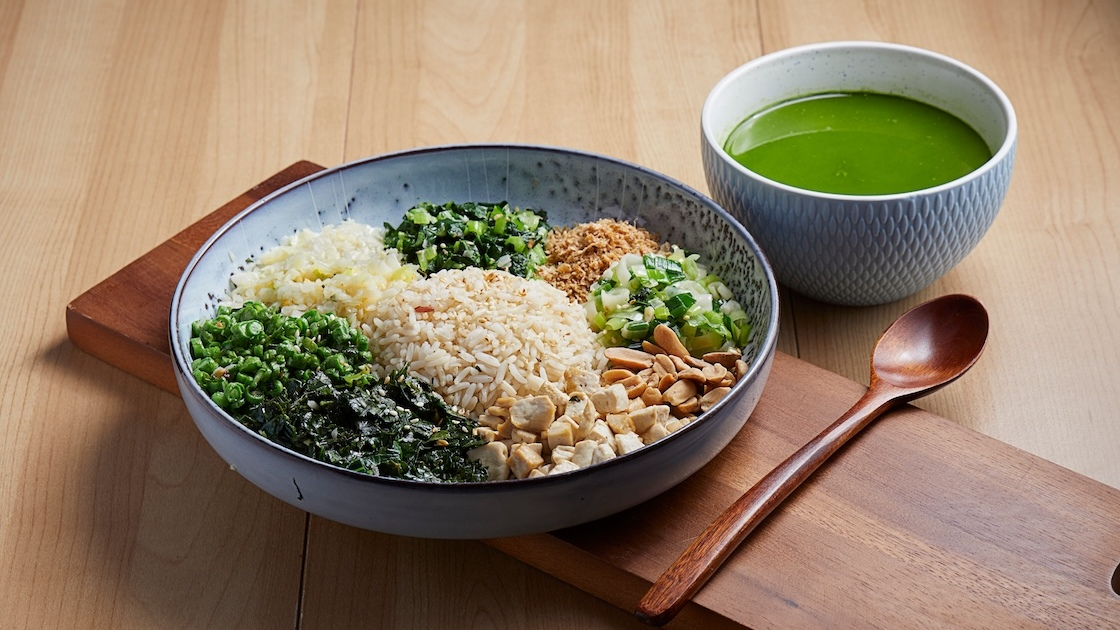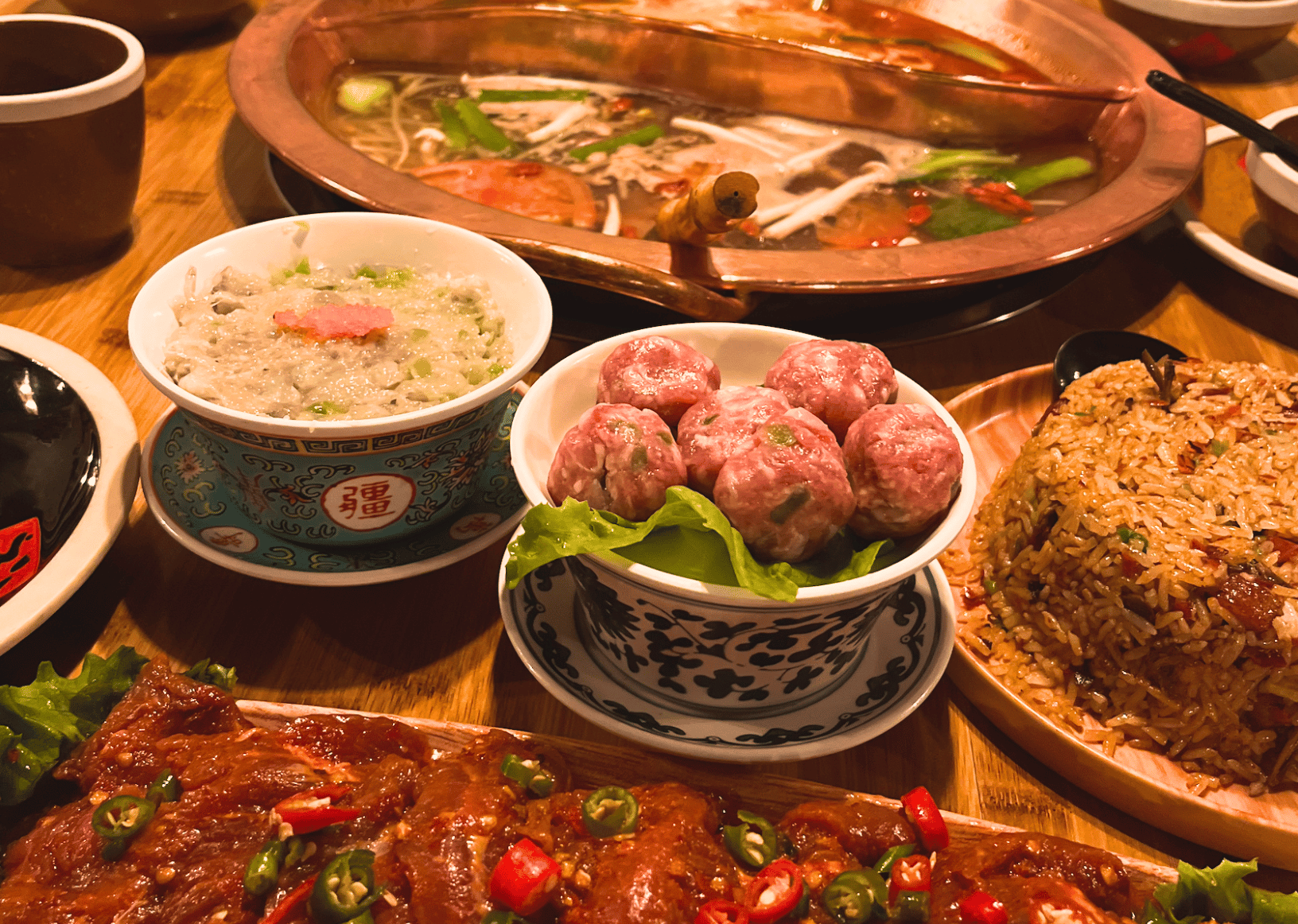Chinese Takeout is a bite-sized, biweekly RADII feature that examines Chinese food from the inside out, by disentangling the (hi)stories behind a single dish or restaurant. Write to us if you have a suggestion or submission.
While unquestionably different from the dumplings in northern China, Guangzhou’s small bundles of wrapped, savory goodness are equally as delicious and celebrated by culinary cosmonauts around the world. Perhaps best known among its dumpling varieties is xiajiao (虾饺), otherwise referred to as har gow in Cantonese.
For readers that have never tried xiajiao before, these southern dumplings are set apart by their thin, nearly-translucent wrapping, which allows you to see the shrimp pieces that make up the dumplings’ insides.

There are likely thousands of establishments within the Guangzhou city limits that sell xiajiao, but Qiuda 6 Zaiji (丘大6仔记) is special for a number of reasons. Chief among them: the restaurant is helmed by legendary Cantonese chef Qiu Weiguo, who has decades of experience and has prepared food for some of the most powerful people on the planet.
So, what can you expect from Chef Qiu’s dumplings? And why is his restaurant a must-visit destination for lovers of finely-crafted Cantonese edibles?
The Place
Located in Guangzhou’s Haizhu district, not far from the city’s Sun Yat-sen University, Qiuda 6 Zaiji is easy to miss, as it’s above street level and only accessible via a nondescript staircase.
When we arrive on a humid Sunday evening in June, the large open restaurant is nearly empty, but quickly fills up as dinner crowds begin arriving en masse. By the time we’ve ordered our first course of food, the eatery is abuzz with a symphony of chitchat, laughter and the occasional hiss of a boiling teapot.
There’s no doubt people feel at home here, and for good reason: The space is unpretentious, with softly colored furnishings that seem almost retro, giving Qiuda 6 Zaiji a ’70s vibe that is, simply put, very cool.
Related:
 Chinese Takeout: Inside Beijing’s “Queen Bee” Government CanteenBeijing’s “queen bee” provincial canteen has the name-brand recognition of its cuisine to thankArticle May 23, 2019
Chinese Takeout: Inside Beijing’s “Queen Bee” Government CanteenBeijing’s “queen bee” provincial canteen has the name-brand recognition of its cuisine to thankArticle May 23, 2019
But Qiuda 6 Zaiji is by no means a “classic” Guangzhou haunt; it’s celebrating only its fourth anniversary this September. What the restaurant lacks in history, however, its proprietor more than makes up for with his vast professional experience in Cantonese kitchens.
The History
Chef Qiu began his culinary journey back in 1981, and spent a whopping 30 years working as the chef de cuisine in one of Guangzhou’s earliest and most notable luxury hotels: the White Swan Hotel. Opened in 1983 on historic Shamian Island, the White Swan is famous for having hosted some of history’s most important power players, from US presidents — George H.W. Bush and Richard Nixon — to Queen Elizabeth II and even late North Korean leader Kim Jong Il.
Naturally, a number of distinguished Chinese politicians have also stayed at the hotel and dined in its Michelin Star-honored Jade River restaurant, which specializes in a variety of dim sum dishes and Cantonese specialties.
Related:
 Where’s the Chinese Food in the World’s 50 Best Restaurants List?Do lists like World’s 50 Best Restaurants and the Michelin Guide do the breadth of Chinese cuisine justice?Article Jun 26, 2019
Where’s the Chinese Food in the World’s 50 Best Restaurants List?Do lists like World’s 50 Best Restaurants and the Michelin Guide do the breadth of Chinese cuisine justice?Article Jun 26, 2019
Qiu is undeniably modest when pressed on the famous guests he has received over the years. He cracks a cheeky smile and nods at the mention of names like Deng Xiaoping and Queen Liz, but he appears to have zero interest in diving into details, and we quickly move on to a more relevant topic: why he left to start Qiuda 6 Zaiji nearly four years ago.

Photos at the entrance of Qiuda 6 Zaiji
“A change of pace,” Qiu tells us, noting that he was looking for a new challenge and opening his own place seemed like the logical next step. In contrast to his former place of employment, Qiuda 6 Zaiji is a much more affordable restaurant aimed at the masses — and as such, draws large crowds of local Cantonese people from across the district.
The Food
The menu at Qiuda 6 Zaiji is extensive, with over 50 different dim sum varieties on offer, in addition to a wide selection of other popular Cantonese edibles. It’s all the classics, from changfen (肠粉, cheung fan in Cantonese, or rice paper rolls) to shaomai (烧卖, shumai in Cantonese; traditional Chinese dumplings popular at dim sum shops), and even dishes from further afield, such as Shanghai’s renowned dumpling specialty, xiaolongbao (小笼包).
Related:
 Chinese Takeout: Who Makes China’s Most Sought-After Dumplings?The xiaolongbao dumpling dominates Shanghai eating, and one brand dominates xiaolongbao in ShanghaiArticle Mar 22, 2019
Chinese Takeout: Who Makes China’s Most Sought-After Dumplings?The xiaolongbao dumpling dominates Shanghai eating, and one brand dominates xiaolongbao in ShanghaiArticle Mar 22, 2019
We are here for one dish, though: xiajiao. These small shrimp dumplings are a staple at dim sum-serving establishments around the world and allegedly originated from a riverside teahouse in Guangzhou sometime in the distant past. (A specific date for the dish’s creation remains elusive, although most online sources claim xiajiao surfaced sometime in the 19th century.)
When our xiajiao arrive in a steaming bamboo basket, Chef Qiu tells us about the origins of the dish. “They are originally from Liwan,” he says, referring to one of Guangzhou’s oldest and most historically significant districts.

Chef Qiu’s xiajiao are perfectly wrapped, with at least 10 pleats on each dumpling (four pieces per order), and filled with shrimp, pork fat and bamboo shoots.
We begin accosting the small, clear dumplings with our chopsticks and popping them into our mouths. The taste is unquestionably delicate, but with a subtle richness that is likely attributable to the addition of pork fat.
While other dim sum restaurants may serve theirs with a dipping sauce, the xiajiao at Qiuda 6 Zaiji come completely on their own, and boast a mouthwatering flavor that does not need the aid of condiments.
We’ve heard Cantonese chefs claim that xiajiao is one of the most important dishes to rise from Guangzhou’s storied food scene. Chef Qiu doesn’t agree, but concedes, “Xiajiao is a local dish and, as a result, famous in Guangzhou.”
Before departing, I toss one last (softball) question at Chef Qiu: “How would you pitch your business to someone who has never been here before?”
“Easy,” he replies. “People come here to try food by a well-known chef, and return because the food is good and very affordable.”
Photos by Robert Palmer & Wang Kaiqi
Related:
 Chinese Takeout: War of the WontonsWhile two warring wonton brands battle it out in court for the same name, we sat down and tried them bothArticle Jun 20, 2019
Chinese Takeout: War of the WontonsWhile two warring wonton brands battle it out in court for the same name, we sat down and tried them bothArticle Jun 20, 2019


















